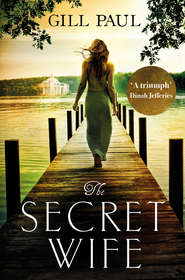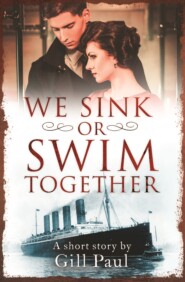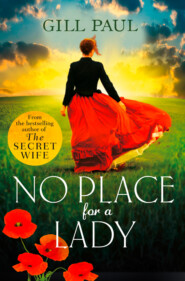По всем вопросам обращайтесь на: info@litportal.ru
(©) 2003-2024.
✖
The Affair: An enthralling story of love and passion and Hollywood glamour
Настройки чтения
Размер шрифта
Высота строк
Поля
‘What does he do?’ Diana asked, and Candy stared in amazement.
‘He’s the director. Didn’t you know that?’
‘I thought it was Rouben Mamoulian. I’m sure I read that somewhere.’
‘Yeah, it was, but he got fired ages ago. The cast has all changed since we came to Italy. But we’ve still got Liz – for better or worse.’
‘What do you mean?’
Candy rolled her eyes comically. ‘You’ll find out.’
Someone popped a head round the door. ‘Candy, there’s a problem with the elephants. They’re being really aggressive and no one can get near them. Will you go and talk to the elephant guy, see what his explanation is?’
‘Sure,’ Candy agreed. ‘Why don’t you come with me, Diana? I’ll get a chance to show you around. You can leave your coat and jacket. It’s sweltering out there.’ She glanced down at Diana’s prim skirt and tights and seemed about to say something else but thought better of it.
They strolled up a shady avenue. Everywhere there were neatly mown grass verges and boulevards lined with stately rows of Roman pine trees and oleander bushes. Lots of people waved and called hello to Candy as she passed, and she called back but didn’t make any move to introduce Diana.
‘The commissary – that’s canteen to you Brits – is down there and the bar’s over that way.’ She pointed to a separate block but walked straight past it. Diana was parched and could have used a cool drink but didn’t want to cause any bother. ‘I’ve reserved a room for you in the Pensione Splendid near Piazza Repubblica so it will only take you about twenty minutes to get here in the morning. A studio driver will pick you up around eight.’ She chatted on about practicalities and Diana tried to remember everything while simultaneously getting her bearings in the vast studio complex, which seemed to stretch for miles in every direction.
They could hear and smell the elephants well before reaching the enclosure. Roaring, with trunks raised, and stamping their feet, they were terrifying the horses in the nearby stables. Diana couldn’t count them all as some were inside a sandstone outbuilding, but four were pacing around outside. Candy approached a man who seemed to be in charge and had a conversation with him in Italian. He spread his arms and shrugged, telling her that it wasn’t his fault they were restless; that’s just how they were.
Diana looked at the poor creatures, each restrained with a heavy chain around one ankle. Their eyes seemed astonishingly human and knowing. The closest regarded her as one fellow creature to the other, requesting sympathy for its plight. Then she looked at its ears, which were small and drooping. She remembered her school biology teacher explaining that African elephants have large ears that fan back over their necks in the shape of Africa, while Indian ones have smaller ears that droop to a point, like a map of India.
She asked the trainer, ‘Questi sono elefanti indiani?’
‘Sì, certamente,’ he replied then spun off into a chain of complaints about his contract and the conditions under which he had to work.
‘Is that a problem?’ Candy asked Diana.
‘It’s just that Cleopatra would, of course, have had African elephants. Her kingdom was in Africa. Hardly any viewers will spot the difference, I’m sure.’
‘Fantastic!’ Candy exclaimed. ‘You may just have given us a way to get out of our contract with this guy and his over-aggressive animals. Walter will be thrilled.’
‘Oh, good. Should we go and find him?’ Diana felt she would like to see a friendly face. Perhaps he would be able to explain what was expected of her.
‘You can never find Walter when you’re looking for him – only when you’re not,’ Candy said. ‘We’ll head back, and maybe stop for a drink? You look hot.’
Diana nodded gratefully. She had pale English skin that didn’t take the sun well and she could feel her cheeks tingling after half an hour in the Roman sunshine. She asked the barman for some water, which came in a green glass bottle with a pretty label saying San Pellegrino. Why bother with bottled water, she wondered, when Rome was reputed to have the best tap water in the world, brought straight from mountain springs by their famous Roman aqueducts? It seemed crazy.
Candy had business in a back part of the studio and Diana tagged along, feeling completely lost. How would she ever find her way around this virtual metropolis? She was hot and tired and felt very grateful when at last Candy offered to call a driver to take Diana to her pensione.
She found she was on the second floor of an old building, in a large bright room with its own tiny balcony and a view towards the Baths of Diocletian. The room contained a double bed, a wardrobe, and a wash-basin, and it all looked neat and clean. On a side table there was a Cinzano ashtray with the familiar red, white and blue lettering. There was a shared bathroom down the hall and the first thing she did was undress and soak in some lukewarm water to wash away the grime of travel. She dressed in a cool cotton sundress, rubbed Pond’s cold cream on her cheeks and went to ask the padrona if she might use her telephone.
‘Sorry, it’s out of order,’ the woman told her. ‘The nearest public phone is in the bar across the street but you will need some gettoni. You can buy them at the tabaccaio over towards Termini station.’ She gestured vaguely.
Diana kicked herself for not buying more gettoni at the airport earlier. She knew the station was several streets away. She’d wanted to ring Trevor to let him know she’d arrived safely. Ideally she would have liked to tell him about seeing Rex Harrison, and about the Indian elephants, and all her other impressions of the set, but she knew she couldn’t expect him to share her excitement. They were barely speaking to each other.
She felt a sharp pang of missing him. They normally told each other everything, in a long stream of conversation that they updated as soon as possible after spending any time apart. It was hard to move from that intimacy to a life that was unshared, unwitnessed.
She hung up her clothes then sat on the bed looking out across the rooftops of the Eternal City as the sun gradually set, picking out individual windows to blaze fiery bright for a few minutes each, and casting a golden glow on domes and turrets. The smell of cooking wafted up from the kitchen of a trattoria next door and she decided she would eat there then come back for an early night. She’d call Trevor the following day. He hadn’t even said goodbye properly so he had no right to expect her to ring on her first evening.
Chapter Four (#ulink_bf85c754-307a-50d1-8aa2-16a898ce6440)
‘Hey, Scott, how’s it going?’ his editor’s voice boomed down the phone. ‘I’ve got a commission for you: fifteen hundred words on the Italian Communist Party. How does it differ from the style of Communism in the Soviet Bloc? What are its aims, and how much influence does it have in Italy? Think you can handle that?’
‘Sure! When do you need it?’
‘Is a week enough time? Or are you too busy chasing Italian chicks?’ The editor saw Scott as an international playboy type and Scott didn’t like to disillusion him by admitting he hadn’t had so much as a kiss since he arrived in Europe.
‘A week it is,’ he replied. At last he could demonstrate what he was capable of. Those booze-sodden hacks in the Eden Hotel bar would have to take him more seriously once he’d had an intelligent opinion piece published.
He needed some direct quotes from Roman politicians so his secretary told him about a translator called Angelo who could set up the interviews and assist when his very basic Italian would not suffice. It would be his foot in the door of Italian politics, and it was just a shame that the first politicians he would meet were Communists. Scott knew very strongly how he felt about that. In fact he had begun to write the piece before meeting them.
Some trade unionists here in Rome condemned the brutal Soviet repression of the Hungarian uprising, but the party leadership kept quiet because they know where their bread is buttered, he wrote. Moscow holds the purse strings on which their power base rests and even if they use more moderate language than Señor Fidel Castro, they still believe that the working classes should unite to overturn capitalism. Some 4 percent of Italian workers are members of the Communist Party but you can bet that these are not the forward-thinking textile workers who are making Milan such a modern center of clothing manufacture, and not the directors in charge of protecting the famous antiquities of Rome, Venice and Florence, because Communism would abandon those to dust. It is the politically ignorant peasant who believes all those fine words about sharing wealth, little realising that under Communism there would be no wealth, along with no freedom of speech or action.
He interviewed the politicians but used their quotes in such a way as to make them sound naïve at best and self-serving at worst:
Corruption is a way of life in Italy, he opined, and no one is exempt, but those of the far left with their moral posturing about the good of the many are by far the greatest hypocrites. Look how quickly Señor Castro rushed to abandon democratic elections in Cuba earlier this year. Given half a chance, Italian Communists would do so even faster.
It was what his readers in the Midwest, smarting from American defeat in the Bay of Pigs just four months earlier, wanted to hear, and it happened to be what Scott believed. He and his classmates at Harvard had been aghast when the CIA-trained band of counter-revolutionaries were defeated by Castro’s forces, with their Soviet-designed tank destroyers and fighter-bombers. Now it seemed Americans must resign themselves to Reds on the doorstep, just 90 miles across the water from the Florida Keys, unless John F. Kennedy had some other plan up his sleeve. Surely he must.
Scott’s editor ran the piece across a double page, with photos of Italian workers in the fields alongside a textile loom in Milan, and Scott was thrilled when he got his copy by special courier. His byline was directly beneath the headline: ‘by Scott Morgan, our Rome correspondent’.
A day later, though, he received a phone call from Angelo, the translator. ‘I hope you never want to interview any Italian politicians again,’ he said, ‘because, to use an English phrase, you have burned all your boats.’
‘Nobody will read it here in Rome, will they?’ Scott asked. The thought simply hadn’t occurred to him.
‘Of course they will. They gave the interviews and their press advisors will have obtained copies to see how they were portrayed in your article. You can be sure they will not be pleased with your patronising attitude and lack of any attempt to understand the issues.’
‘You’re kidding. Why didn’t you warn me?’
‘My mistake. I gave you credit for a little intelligence.’
That evening, Scott went to the Eden Hotel to see what his compatriots thought, and he was greeted with much hooting and clapping on the back. ‘Aw heck, you didn’t want to be a political journalist anyway, did you, Spike?’
‘You’ve all read it?’
‘How could we miss your print debut, especially when it refers to Communist Party members as politically ignorant peasants?’
Joe bought him a large whisky and Scott downed it quickly.
‘Shall I tell you my secret?’ Joe slurred, his evening’s drinking obviously well advanced. ‘I read the Italian press and adapt stories from that. My editor never knows any better. Grab a dictionary and spend the morning going through Corriere della Sera and La Stampa and you’ll do just fine here.’
The next morning, Scott decided to do just that, but the only stories of international interest were about Elizabeth Taylor and her entourage arriving in Rome to make a Cleopatra film at Cinecittà. There were descriptions of her seven-bedroom villa on Via Appia Antica, her children, her dogs, her recent near-death illness, and a rehash of the scandal when she ‘stole’ her current husband Eddie Fisher from her rival Debbie Reynolds. Scott was scornful of this kind of gutter-press journalism and determined not to lower himself. His heroes were Norman Mailer and Tom Wolfe, serious men who wrote in an innovative style that read like fiction but contained hard facts. Neither of them would sink so low as to comment on Elizabeth Taylor’s dogs. He felt gloomy.
The clock read twenty past ten and he realised he just had time to catch his beautiful Italian girl leaving her house. She had begun smiling at him when he greeted her and once she had even returned his ‘Buongiorno’ so he felt it was important to keep up the momentum.
He jumped on the Vespa and scooted through the traffic, arriving in Piazza Navona with minutes to spare. He popped into a tobacconist’s to buy some Camels and through the window he saw her emerge from her house and cross the street. Throwing the money over the counter, he was able to step out of the shop straight into her path.









